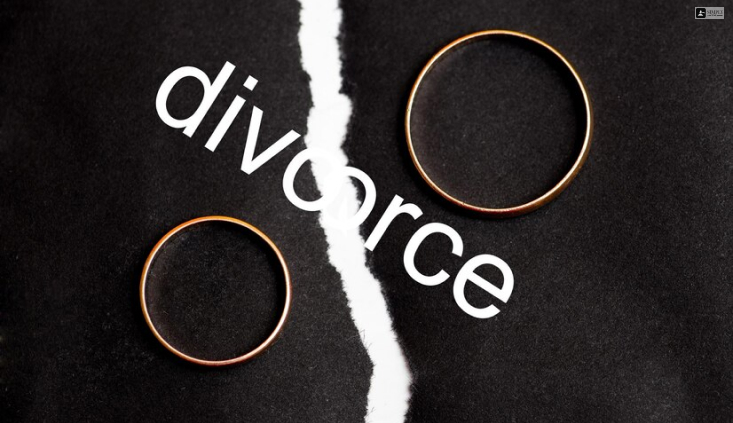
Be it divorce or separation, they’re equally frustrating. They even tend to put a huge emotional toll on us.
However, we have observed that anyone who is not familiar with the intricacies of law does not understand the difference between separation and divorce. Well, don’t worry, we are here for you. In this article, we will discuss the differences between separation and divorce and help you clear off its complexity.
What is Separation?

Separation doesn’t particularly entail a legal backdrop. It is often casual. For example, it happens when some married couples choose to take breaks from one another.
This doesn’t officially mean that they want to end their marriage. However, it often is loosely interpreted as “wanting a break”.
Separation means that you and your partner are legally married, but your living arrangements are separate in nature.
Types of Separation

Separations can be informal and there are many reasons to choose from separation. However, there are also different types of separation. They are:
Permanent Separation
In this case, you and your spouse would be living apart from one another. However, in this case, you and your spouse do not have any scope for reconciliation. This means, informally you both are separated from one another, but you’re not doing it on a legal basis.
Legal Separation
In this case, your separations are now recognized by the court. However, it doesn’t mean divorce.
Normally, not all states recognize separation on a legal basis. Some states would even rather grant you divorce than separation.
In this issue, the judge would oversee it legally about the division of marital properties and its debts.
What is Divorce?

Divorce is the legal way of dissolving a marriage. Divorce cancels and reorganizes any sort of responsibilities and other legal duties encompassing marriage.
Divorce is however very different from annulment where it declares the marriage to be null and void. Annulment is also synonymous with legal separation or de jure separation where the couple is separated permanently and has even nullified their marriage.
Differences Between Separation and Divorce

As mentioned before, divorce and separation might seem the same at the beginning. However, it isn’t. Here are some ways through which you can understand the difference between the two.
Separation can become an alternative to divorce, but marriage still remains legal and valid.
Marital Status
One of the biggest differences between separation and divorce is its legality. Even though in society, you might seem separated, however, legally you both will still be together.
You will both have child custody and child visitation orders that will be issued by the court. This will be the case even in the case of divorce as well. However, you wouldn’t be free to remarry if you were separated. In divorce, you would have that freedom.
Making Decisions for One Another
The major difference in this scenario is that, even when the partners are separated, they still belong to the same next of kin to each other. They both would have the right to make medical and financial decisions for one another.
Healthcare Benefits
In this case, the separation and divorce parameters vary based on the retention of healthcare and other social security benefits. However, if both of you are divorced, these benefits will be discontinued from both ends.
Property Rights
Like healthcare benefits, when you’re in a legal separation, you both will have equal rights on the property you jointly own. However, in case of divorce, your property will be divided, and you both will be assigned your designated parts.
A Chance of Reconciliation
As the couple remains married during separation, there is still room for reconciliation. This defines the major difference between divorce and separation. While separation is temporary, divorce is something permanent. In divorce, you wouldn’t have the chance to reverse your decisions.
Major Similarities Between Legal Separation and Divorce

Both legal separation and divorce are absolute in nature. They both allow each party to live out their live their lives independently.
Moreover, even though divorce severs the ties between two individuals, a separation on the other hand, serves as an outline for a divorce decree.
Separation comes up with ways in which assets and debts will be divided when the party gets divorced. Divorce and legal separation both provide the window to move on, date other people, and make other independent investments.
Differences to Keep in Mind While Choosing Between Separation and Divorce

Sometimes, you might feel overwhelmed by the notion of separation and divorce. However, neither of them is not the same.
It’s clear that divorce comes as a much more permanent decision than that of its separation counterparts. But both these decisions come with several advantages and disadvantages. There are some minute differences between divorce and legal separation but there are also many possible similarities.
However, if you’re going through a phase where you think divorce is absolutely needed, then it’s best to know all about the legal options available for divorce and even for legal separation.
Since both legal separations and divorce have their own sets of implications, it becomes pivotal to understand what consequences both might deliver.
Pros and Cons of Separation Before Divorce
Sometimes, it’s hard to make a choice. It becomes difficult to choose between getting separated temporarily or heading directly for a divorce. It can be a challenging task for a couple to decide about what kind of solution they’re looking for.
Pros
It gives you a space to think and reflect: When you’re separated it gives a scope to you and your spouse to reflect upon the problems you’ve been facing together or even separately. You can even look for couples therapy as well and decide if you want to be together or not. Remember, this is an important period of self-discovery for you where you can reassess your goals and priorities.
Financial benefits: One of the biggest pros to keep in mind about separation before divorce is reflecting upon your financial situation. Let’s say that you both can stay under the same health insurance plan that would be a great way to relieve your tax burden. Other than that, you can even avoid any cost under a divorce attorney and negotiate favorable terms of separation.
Cons
Emotional strain: Sometimes taking a break from one another can be subject to inevitable stress. It can be extremely challenging emotionally and can lead to anxiety.
Furthermore, this also comes with tons of emotional distress, not only to you but to your children as well.
Legal complications: Even though it’s a mutual separation agreement, it can be complicated like divorce. The added problem is when the couple are married. Legal separation sometimes talks about child custody and support alongside alimony. Sometimes you both must compromise on this front to get a favorable result.
Can You Be Legally Separated?

In most of the states of the United States, yes you can be legally separated. You and your spouse can remain legally separated forever if you both agree.
In some states, the courts tend to put an end date on legal separation. In that case, after that, you have to get a divorce. You can even think about reconciliation and ask the court to extend the term of legal separation.
Remember that legal separation doesn’t dissolve a marriage. While you’re legally separated, you or your spouses can’t remarry, unless you have a final divorce decree.
Importance of Legal Separation
Legal separation holds vital importance depending upon the couple. In some religions, divorce is something which is prohibited. In that case, legal separation becomes the only way for the spouses to stay religious and be separated.
Also in some cases, legal separation helps the couples to have a sneak-peak about what it’s going to be like when they file for divorce. How? For instance, they might have to face custody sharing and hearing procedures about divorce that would entail them living on one income.
Is Legal Separation Protective in Nature?
Legal separation helps you to move on from one another. It helps them to be independent in their marriage without even going through any formal legal procedure. Legally separated couples often provide each other with health care, social security, and even tax benefits. We would advise you to go through all the benefits of legal separation with your attorney before thinking about finalizing one.
Additionally, a court order in a legal separation holds the same weight as custody, property, and even in cases of a divorce decree. Here, both spouses are bound by a separation order.
Final Thoughts…
Separation or divorce: both might sound different but hold equal emotional weightage. You can undergo emotional strain while being in the process and even after the process.
Here we have encapsulated the essentials you might need to know about divorce and separation and its key differences. Is there anything we missed out on? Do let us know!
Read More…
How Long After a Divorce Can You File a QDRO?
Does Cheating Affect Divorce Settlement?
What Happens if One Spouse Dies Before Divorce Is Final


